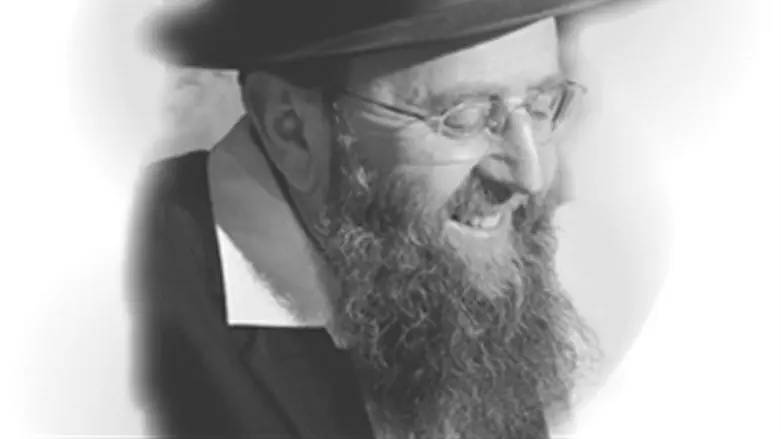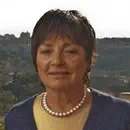
Hundreds of young adults, easily recognizable as belonging to the Religious Zionist sector – pre-Army mechina, hesder, women's midrashot and university students, with anticipation in their eyes and smiles of recognition as they saw one another, flocked to a seminar in memory of Israeli Rabbi Shagar held last week. There was a smattering of the older generation (like this writer) and some haredim, but it was something of a sociological phenomenon as masses of young Israelis travelled and walked miles to spend the afternoon and evening honoring the memory of a rosh yeshiva, mentor, and original thinker most of them had never met - and who is a talked-about influence in their lives - but of whom many American Jews, even central Torah personalities, may never have heard.
Ten years have passed since the untimely passing at 57 of Rav Shimon Gershon Rosenberg, known to all by the acronym Rav Shagar, and not many Israelis knew much about his approach to Torah during his lifetime either. He was not a charismatic speaker and did not attempt to draw attention to himself, publishing little during his lifetime, but leaving a treasure of original writings on a large variety of Judaic subjects, 18 books of which have since been published by his cadre of close students - with others, especially his lectures on Gemara, still being edited.
More than one speaker at the seminar, all of whom expressed their longing for his presence, said that publishing him was like revealing a special secret. He might have agreed. Severely burned when a missile hit his tank in the Yom Kippur War and bandaged in hospital for weeks, he spoke allegorically of working on "removing the bandages" covering the Torah for the current generation.
After spending eight years as a Rabbi (Talmud teacher) in Yeshivat Hakotel, he founded a short-lived yeshiva with two other stellar, unusual Religious Zionist figures in the Israeli Torah landscape, the late Rabbi Menachem Froman and Rabbi Adin Shteinsaltz (may he be granted long life) where learning took place in an individualist combination of Kotzker self-criticism, striving for perfection, hassidism, philosophy, and openness to academic discovery.
Later, after the yeshiva heads separated, Rav Yair Dreifus, his close friend, and Rav Shagar founded the Siach (Dialogue) Yeshiva accepting only 4th year and up hesder students, those who had already matured in yeshiva and army service. The yeshiva drew a constant stream of post-army students and over the past year successfully turned to first-year hesder students as well.
Not everything Rav Shagar said was understandable to other rabbinic colleagues or agreed with and the late Rav Amytal of Har Etzion Yeshiva is said to have compared him to Rabbi Meir of Talmudic times, who also was not completely understood.
Flyers at the seminar announced a new and unique two-year program at Siach called: "We will delve into His Torah," to be headed by student close to Rav Shagar, Rav Noam Samet, and open to students who have spent 6 years in a post-high school yeshiva and "who want to be part of a creative and exciting learning environment." It includes in depth Talmud, hassidism, philosophy, and workshops on the relationship between body and soul, which sounds much like mysticism.
Rabbi Shagar's example was first and foremost strict adherence to halakha - he did not, as opposed to other new Torah study centers, try to adapt the Torah to suit the times, but, an original thinker, was able to reconcile postmodernity and its individualism with strict observance of Torah law, innovatively find room for the halakhic way of life as a choice in a postmodern world, for Torah as it had been handed down through the generations. Halakhically strict, an avid Talmudist, he was philosophically and personally existentialist and demanding of himself. At the same time, he saw Rabbi Avraham Kook, who stressed the holiness of the nation and the miracles of its return to the land, as his spiritual mentor.
Israeli Religious Zionist young adults grow up in an environment open to modern and postmodern philosophy, experience the vicissitudes of Israeli society, the existential questions in the IDF, and many have trouble resolving the apparent contradictions with Torah ideals and demands. The combination of hassidism, with emphasis on Breslov, individualism, spirituality, and mysticism in Rav Shagar's approach and answers seem to resonate in the souls of this generation.
Some of his writing seems particular to the Israeli experience, but in the one book which was translated into English recently, "Faith Shattered & Restored," those parts were omitted. There is much for world Jewry to study In particular, in his work on repentance, he stresses that real teshuva is not in being forgiven by someone you have wronged, but in forgiving those who have wronged you, a harder challenge.
To quote Rabbi Samet:
"He dared to dream and question. Was proficient in the entire world of Judaism - the Talmud, halakhah, philosophy, and hassidism.
"He knew how to deal with the most sensitive issues of this generation's youth, the aching confusion of young Israeli Religious Zionist society today. The tension between the modern and postmodern, the Jewish family in our generation, he found new ways for the family to grow and blossom - standing up to all the far-from-simple challenges extant, in the Beit Midrash and outside of it. He went strictly according to our Sages, but somehow blazed new paths to understanding.
"His last message to us before he died was to be brave with the courage that comes of holiness, cognizant of what G-d expects of us all the time - and we want to try to be able to live up to that."
The hundreds who came to hear Rabbi Yair Dreifus, Rabbi Dov Singer, Poet Rivka Miriam, and others and learn in chavruta if they so chose, now have that challenge before them.
